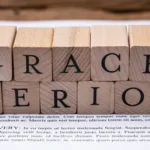Mental asylums usually see people of different mental illnesses and age groups come under one roof. An accident in this location can happen anytime, as people are volatile and cannot take many directions. People working in asylums need high levels of patience, life-saving skills, and knowledge of medical procedures. They must also have the physical strength to handle a breakout or a collapsed individual. Knowing ACLS in mental asylums is a plus and sometimes comes in handy. This blog discusses the importance of knowing advanced cardiovascular life support skills while working in a mental asylum.
Master ACLS Now
Get ACLS certified with confidence
What kind of Medical Emergencies Happen in a Mental Asylum?
Mental asylums, or psychiatric hospitals, are places where people with mental health conditions can receive treatment. As with any other healthcare setting, medical emergencies can happen in mental asylums. Some of the most common medical emergencies that can occur in mental asylums include:
- Seizures: This sudden, uncontrolled electrical disturbance in the brain often causes cardiac arrest. They can also have muscle spasms and/or lose control of their bladder or bowels.
- Overdose: It is a condition that occurs when a person takes too much of a medication or drug. It can be life-threatening and cause various symptoms, including seizures, coma, and death.
- Suicide Attempt: This is a serious attempt to end one’s life. Various factors, including mental health conditions, substance abuse, and trauma, can cause it.
- Falls: This is a common occurrence in mental asylums, as many people with mental health conditions struggle with balance and coordination.
- Infections: People with mental health conditions could easily develop infections, such as pneumonia, influenza, and tuberculosis.
- Heart Disease: People with mental health conditions can develop heart disease. Some people with previous heart issues can also have cardiac arrest.
- Stroke: People with mental health conditions are also at an increased risk of developing stroke. It can also affect people with heart ailments.
Read More: ACLS Certification in Wisconsin
How can ACLS help with handling medical emergencies in a mental asylum?
ACLS, or Advanced Cardiac Life Support, is a medical procedure for treating cardiac arrest. It is a life-saving skill that can be used in any setting, including mental asylums.
There are several ways that ACLS can help with handling medical emergencies in a mental asylum. Firstly, ACLS can help to reduce the risk of complications. When a person goes into cardiac arrest, their body is deprived of oxygen. ACLS can help to reduce the risk of these complications by providing oxygen to the brain and other organs.
Secondly, ACLS can help to improve the quality of life for patients. When a person goes into cardiac arrest, they may suffer from neurological damage. ACLS can help to reduce the risk of this damage and improve the quality of life for patients.
Why should people working in asylums take an ACLS certification course?
There are several reasons why people working in asylums should take an ACLS certification course:
- To Save Lives: ACLS can help to restart the heart and save a life.
- Reduce Risk: To reduce the risk of complications. When a person goes into cardiac arrest, their body is deprived of oxygen. ACLS can help to reduce the risk of these complications by providing oxygen to the brain and other organs.
- Help Others: When a person goes into cardiac arrest, they may suffer from neurological damage. ACLS can help to reduce the risk of this damage and improve the quality of life for patients.
- Increase Confidence of Staff: Staff trained in ACLS are more likely to feel confident handling medical emergencies. It can lead to better patient care.
- To Reduce Liability: Hospitals that have staff who are trained in ACLS are less likely to be liable in the event of a medical emergency. It is because the hospital can show that they have taken steps to train their employees to handle emergencies.
- New Guidelines: Learn about the latest cardiac arrest protocols and guidelines. The ACLS curriculum is updated regularly to reflect the latest advances in cardiac arrest care.
- Experience: Gain experience in performing CPR and using an AED. ACLS certification requires that you demonstrate your ability to perform these life-saving skills.
- Expand Your Network: Network with other healthcare professionals. The ACLS certification process allows one to meet more people. By doing this you can expand your network.
Conclusion
There are many reasons why people working in asylums should take an ACLS certification course. It is a valuable skill that can help to save lives, reduce complications, improve the quality of life for patients, and reduce liability. Head to the Advanced Cardiovascular Life Support Now website to learn more about the course. Once you go through the modules, you will understand why ACLS in mental asylums is a must-do certification for staff members. Log onto the ACLS Now platform and equip your staff members today.







